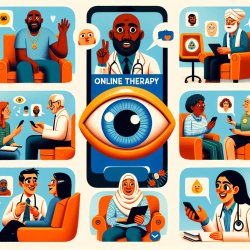The COVID-19 pandemic has challenged our mental health in unprecedented ways. As practitioners in the field of special education, it's crucial to explore innovative methods to support our students and ourselves. One such method is online brain training, specifically the Strategic Memory Advanced Reasoning Training (SMART) program. A recent study, "Effects of online brain training on self-reported mental health symptoms for generally healthy adults during the Covid-19 pandemic," offers promising insights into how SMART can be a valuable tool in these trying times.
Understanding the Study
Researchers Laane et al. (2023) examined the effects of online SMART on mental health symptoms such as depression, anxiety, and stress among generally healthy adults during the COVID-19 pandemic. The study involved 145 participants who completed a 12-week online SMART program and self-reported their mental health symptoms before and after the training. The results were compelling, showing significant improvements in all three areas.
Key Findings
- Participants reported a significant decrease in symptoms of depression, anxiety, and stress following the 12-week online SMART training.
- These improvements were maintained or continued to improve six months post-training.
- The study found no significant effect of gender, but age and education level influenced the outcomes, suggesting that younger individuals and those with higher education levels might benefit more.
Practical Applications for Practitioners
As a practitioner, you can leverage these findings to enhance your own skills and better support your students. Here are some practical steps:
- Incorporate SMART Strategies: Use the SMART program's strategies, such as strategic attention, integrated reasoning, and innovation, in your daily routines and teaching methods.
- Encourage Online Training: Recommend online SMART training to students and parents as a low-cost, high-impact approach to improving mental health.
- Monitor and Support: Keep track of your students' progress and provide additional support as needed, possibly through virtual coaching sessions.
Encouraging Further Research
While the study offers promising results, it's essential to encourage further research to explore the long-term benefits and potential applications of online SMART training in various populations. As practitioners, staying updated with the latest research can help us provide the best possible support to our students.
To read the original research paper, please follow this link: Effects of online brain training on self-reported mental health symptoms for generally healthy adults during the Covid-19 pandemic.










